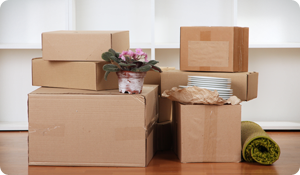
The market for home organizing products in the U.S. is growing rapidly, reflecting our collective penchant for purchasing stuff, which creates clutter-filled homes and an organizing nightmare for many of us.
While organizational tools, such as storage bins, are helpful, they are just that—tools. Oftentimes, these tools only add to the clutter. But all is not lost. By learning a few tricks you can find organization again.
According to productivity expert David Allen, when something is organized, it simply means it is where it needs to be, and in a place that reflects what the thing specifically means to you. (In fact, experts say the first step to getting organized is to ask yourself whether an object's meaning matches its location.) Conversely, you're disorganized if you need something, somewhere, that you don't have, or you have something you don't need.
The National Association of Professional Organizers says organizing is a process, not a state achieved in a day, week, or month. There are no cookie-cutter organizing solutions; however, once you learn good systems, habits, and tools, it's easier to get—and stay—organized.
Getting Organized for Good
Organized people save time and money and reduce stress and frustration, so even small changes can be beneficial. Here, five habits that'll help get you started:
1. Follow your A, B, Cs
In order to create a household (or other) storage plan:
- Assess what you have and where you can store items.
- Box and banish. Store necessary items first, followed by seasonal or occasional use items, such as luggage, and banish everything you don't need, such as unused appliances.
- Corral and control. Find storage containers for everything left and make a final inventory control list.
2. Restock sensibly
Keep your most frequently used items at eye level. Store less frequently used items on high shelves, and use low storage areas for heavy, bulky items, or those that tend to get dirty.
3. Create centers for household activities
Dedicate areas for single activities, such as recycling and paper handling, and stock them with the necessary tools and supplies.
4. Batch phone calls, emails, and texts
Interruptions steal time and distract you from your task at hand. Instead of responding to them as they arrive, set aside time to devote to these tasks.
5. Eliminate homelessness
The number one cause of clutter is objects that don't have a home. HGTV suggests implementing the one-in, one-out promise: for every new item, one of the same must leave. A corollary to this suggestion is to rent or borrow items where possible.
Psychologist LeslieBeth Wish suggests working with buddies to get organized. "Huge projects become less paralyzing when you tackle them with someone else," she says. It's also not necessary to complete an entire organizing project at once—and might even be more productive to break it into two or more sessions.
LeslieBeth Wish, EDD, MSS, reviewed this article.
Sources:
"4 Tips for a Stress-Free Home Makeover." RealSimple.com, accessed July 15, 2013.
http://www.realsimple.com/home-organizing/organizing/home-makeover-tips-00100000102827/index.html
Dorothy Breininger. "10 Ways to Free Up an Hour of Your Day." GoodHouseKeeping.com, accessed July 15, 2013.
http://www.goodhousekeeping.com/home/cleaning-organizing/more-time-each-day#slide-1
Cynthia Townley Ewer. "Home Organization Rules." HGTV.com, accessed July 15, 2013. http://www.hgtv.com/homekeeping/the-rules-of-home-organization/index.html
Cynthia Townley Ewer. "Keep Clutter From Coming Back." HGTV.com, accessed July 15, 2013
http://www.hgtv.com/homekeeping/keep-clutter-from-coming-back/index.html?ic1=obinsite
"Store It! Create A Household Storage Plan." OrganizedHome.com, accessed July 15, 2013
http://organizedhome.com/cut-clutter/store-create-household-storage-plan
David Allen. "What Does 'Organized' Really Mean?" HuffingtonPost.com, February 6, 2008.
http://www.huffingtonpost.com/david-allen/what-does-organized-reall_b_66509.html
Jessica Stillman. "How Much Time Should You Spend Getting Organized? None." Inc.com, January 17, 2012.
http://www.inc.com/jessica-stillman/how-much-time-should-you-spend-getting-organized-none.html
"Organizing Q&A." National Association of Professional Organizers, accessed July 15, 2013.
http://www.napo.net/get_organized/organizing_tips/organizing_faqs.aspx





